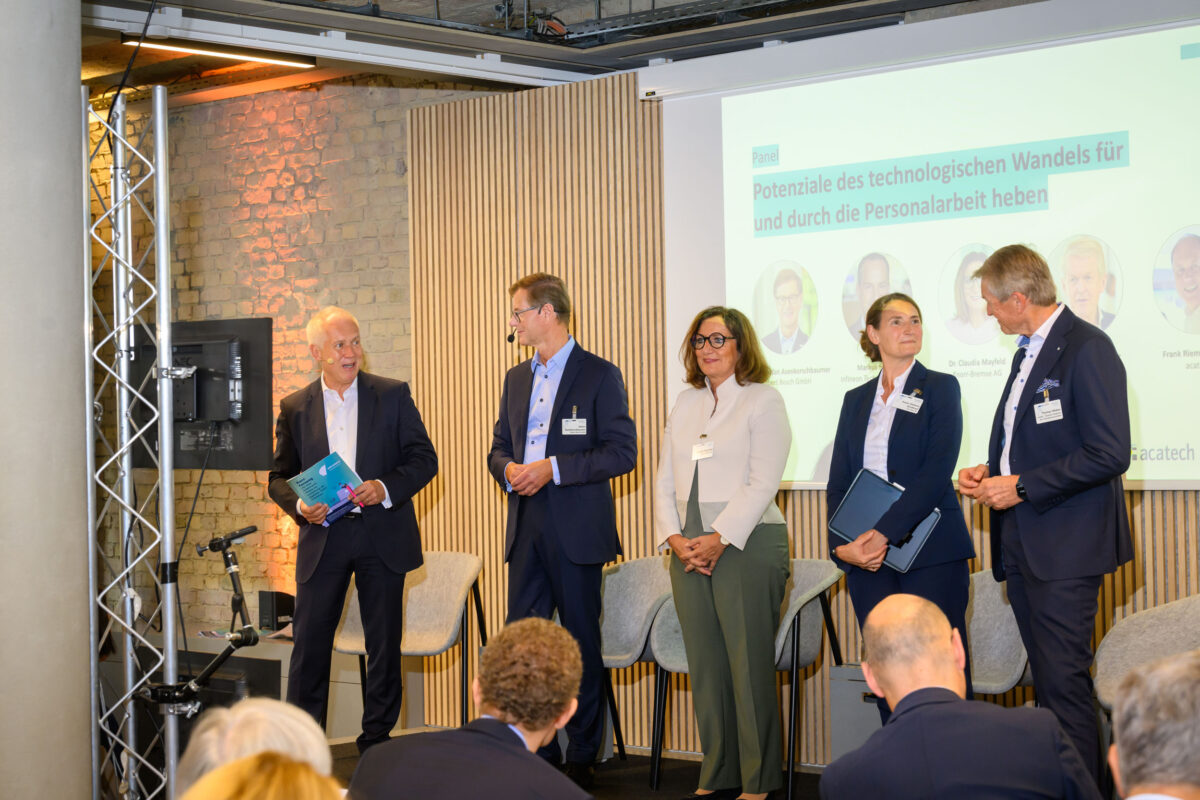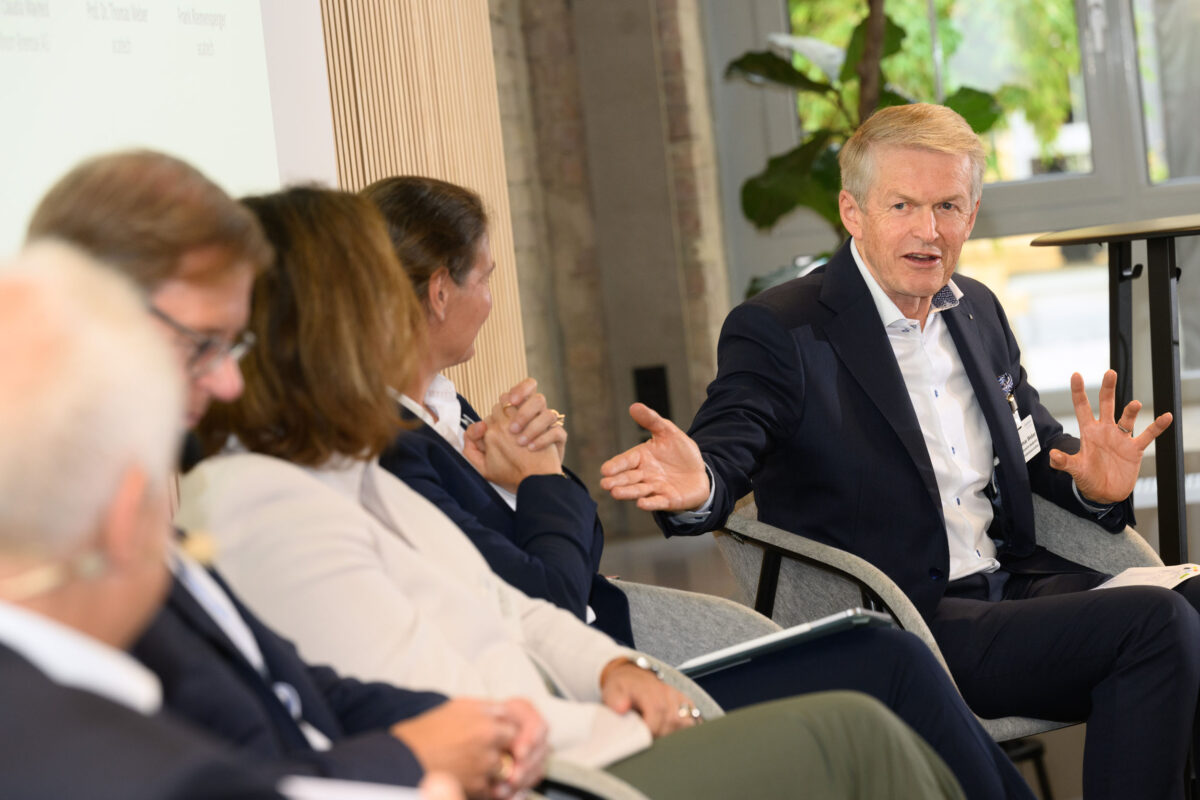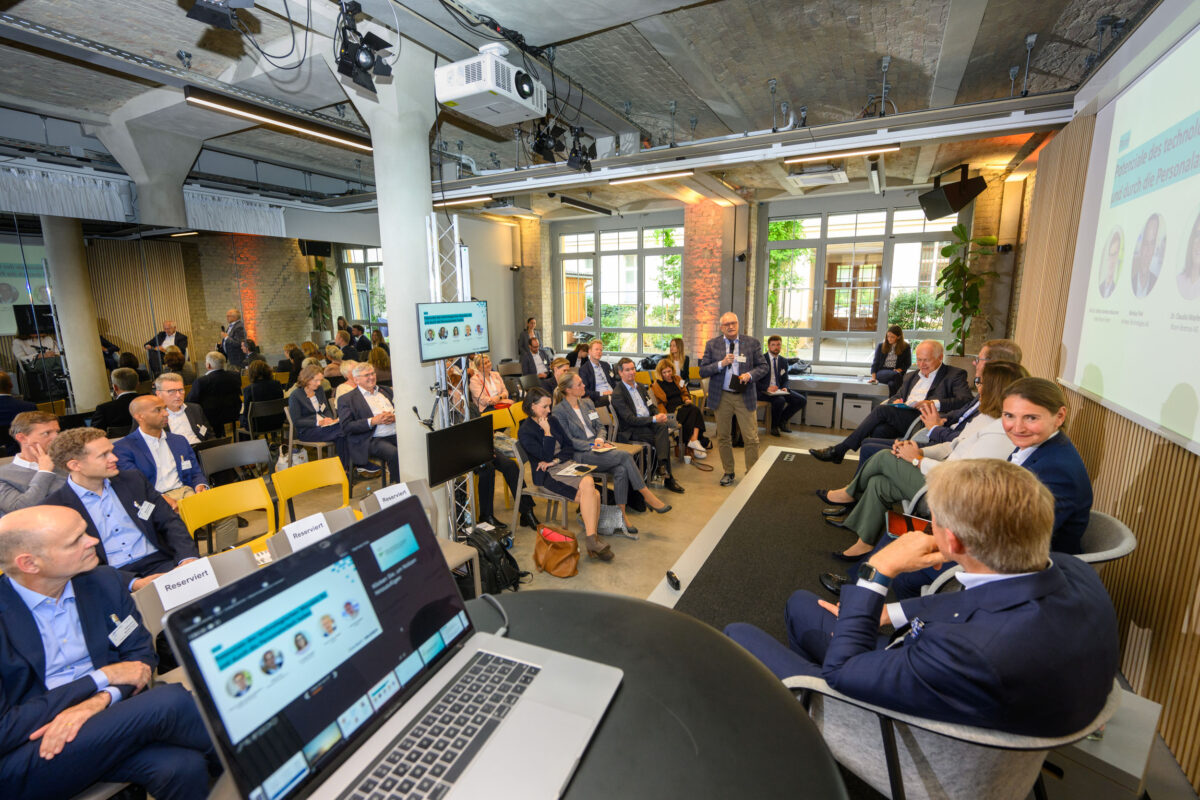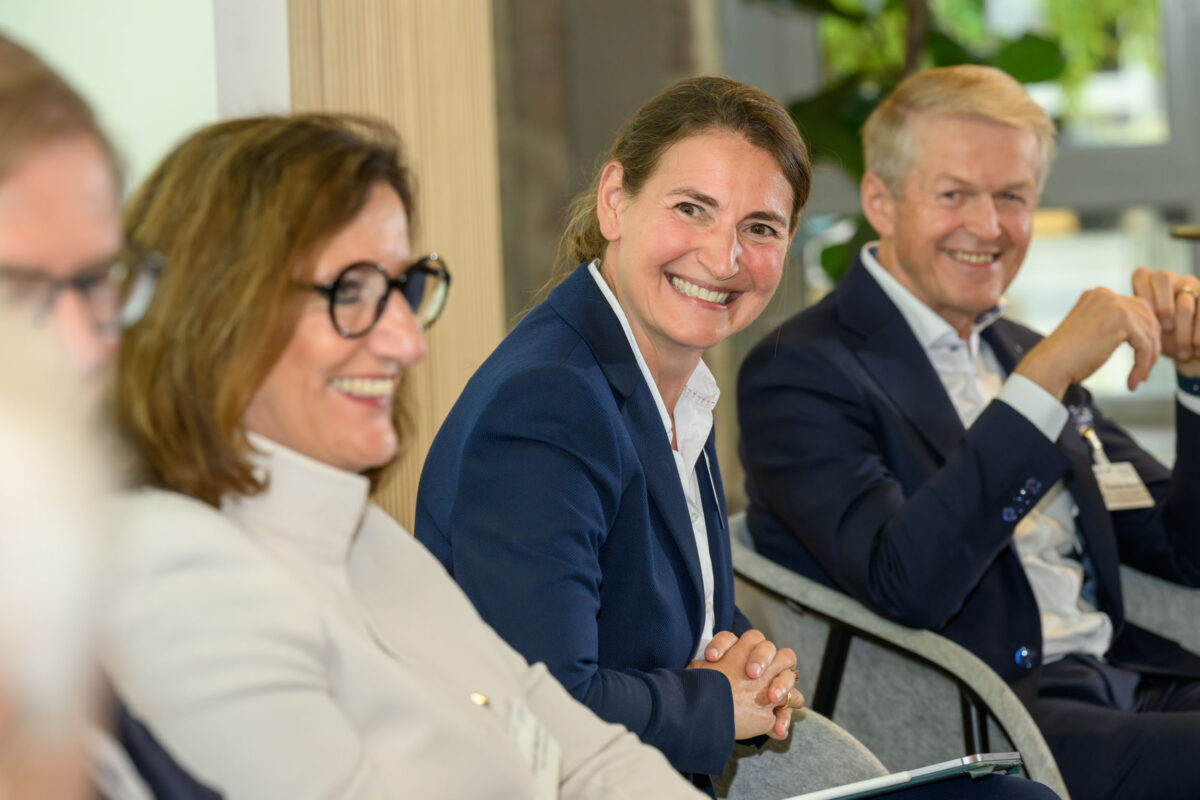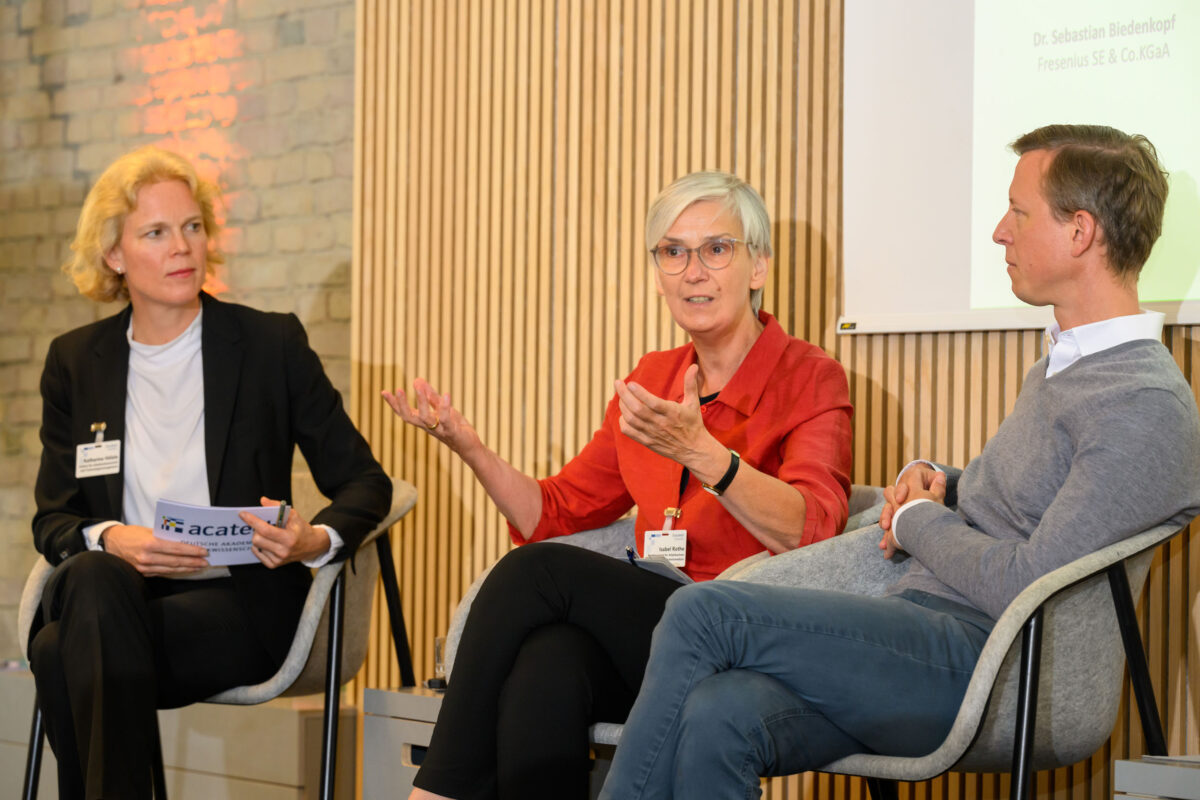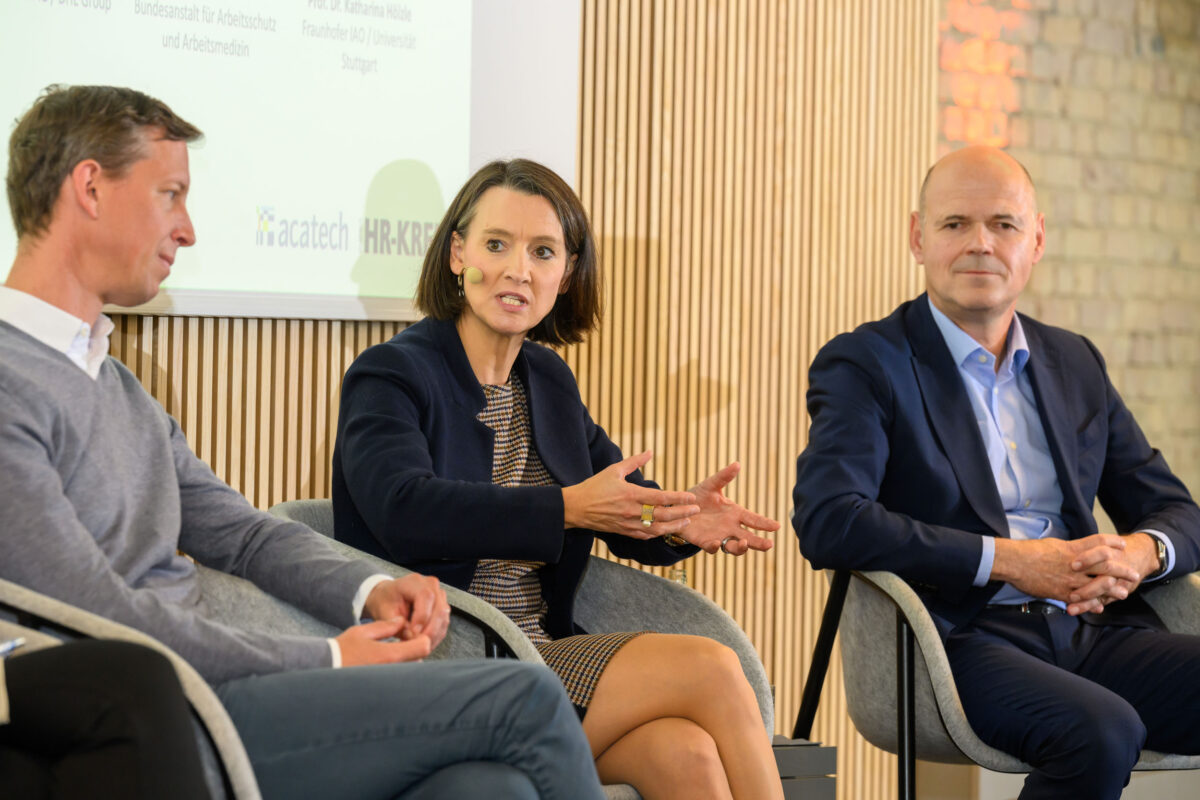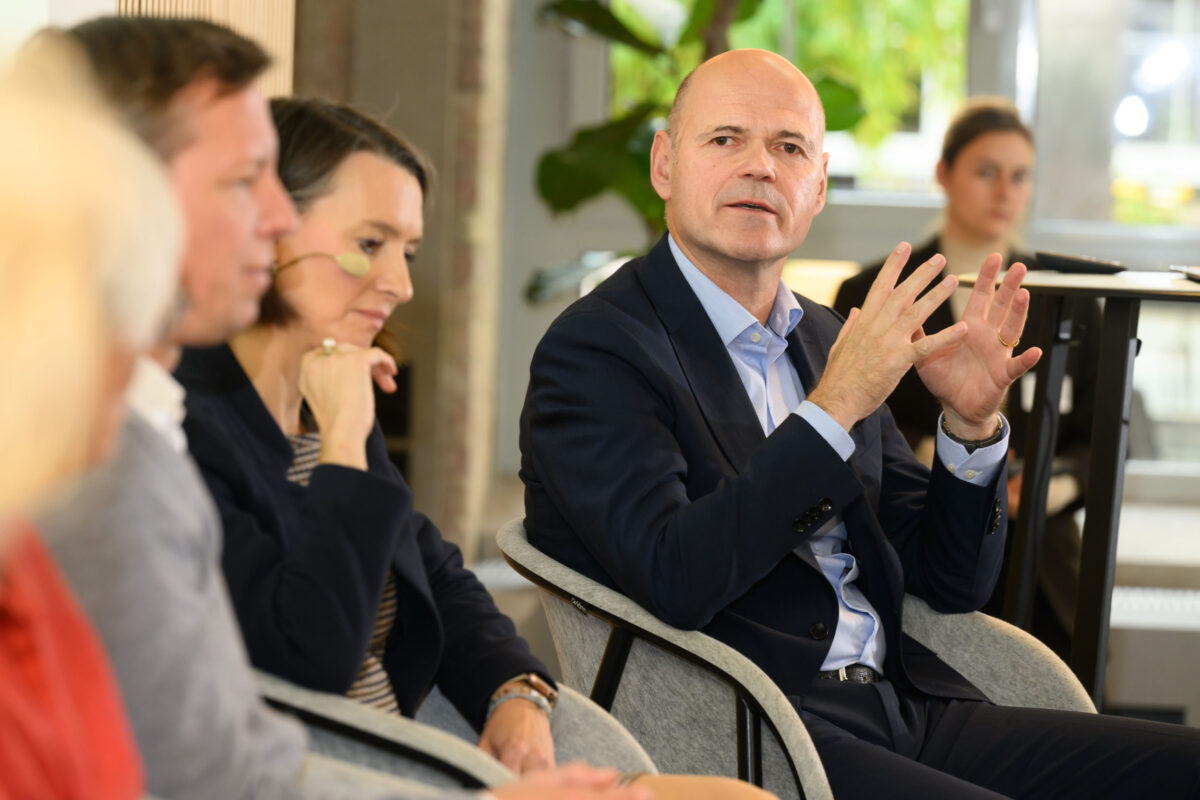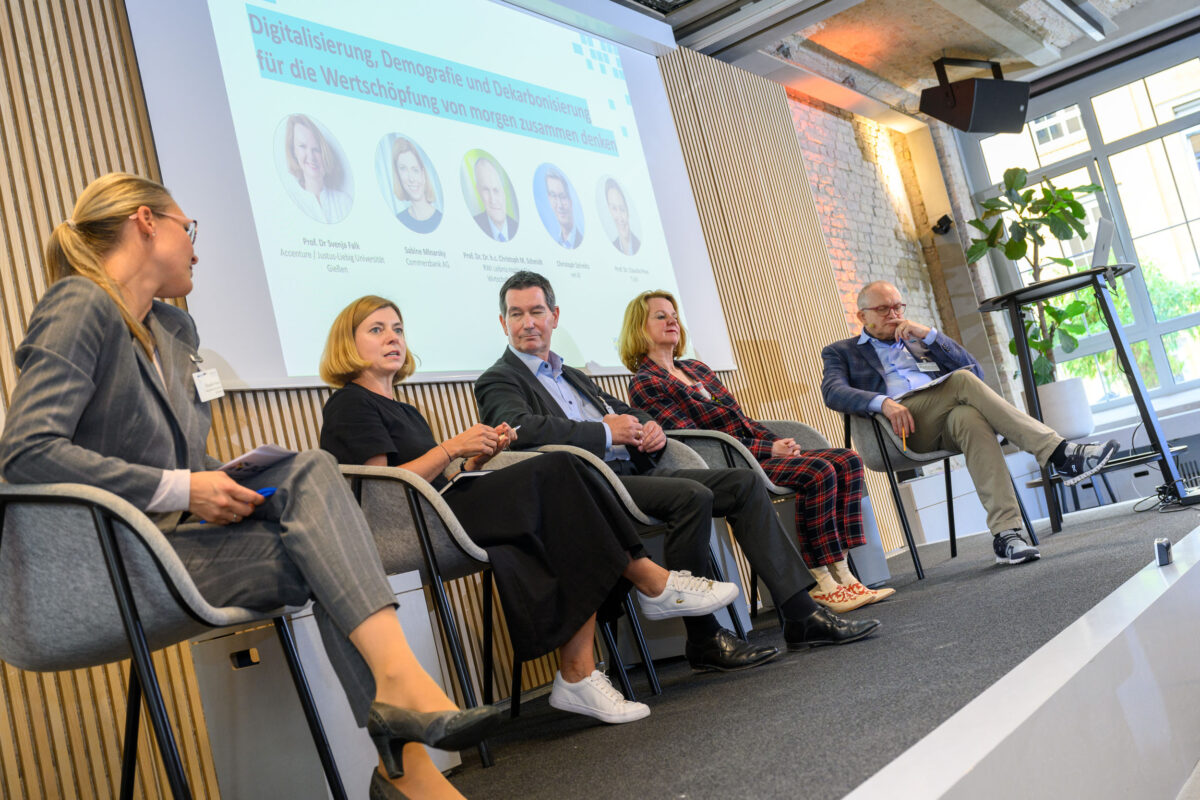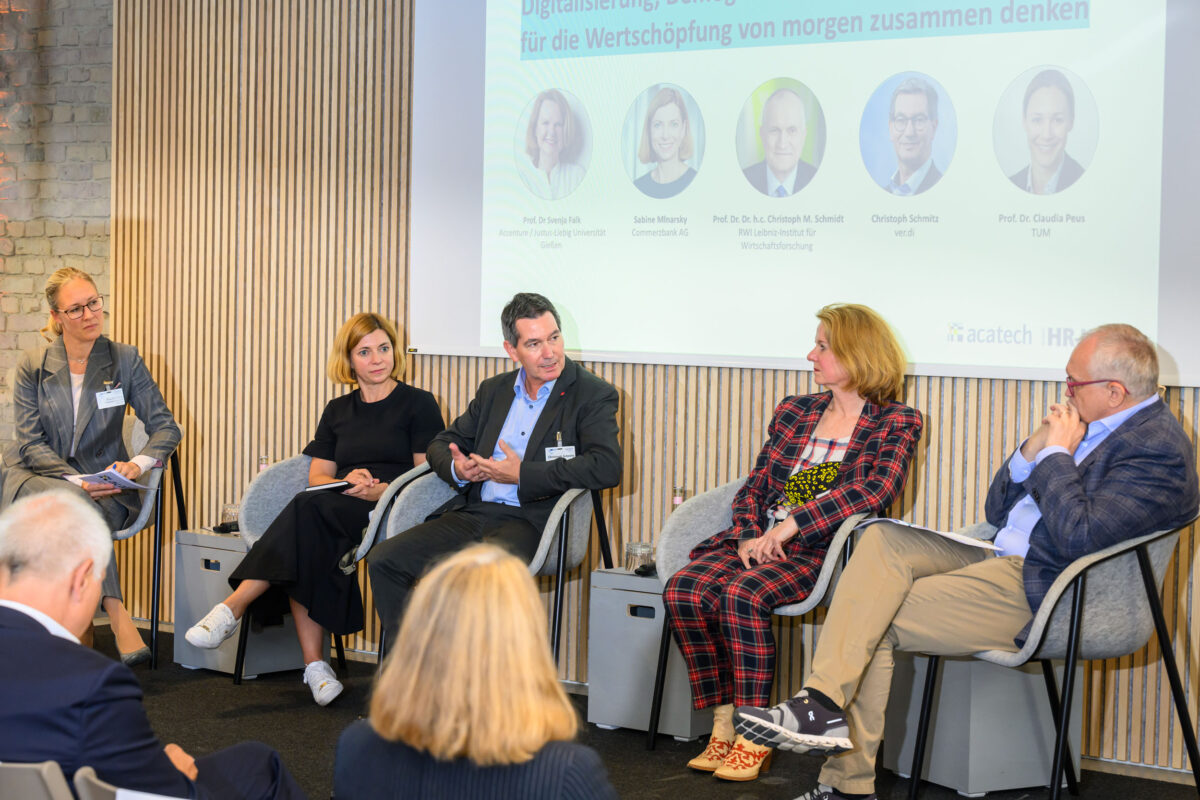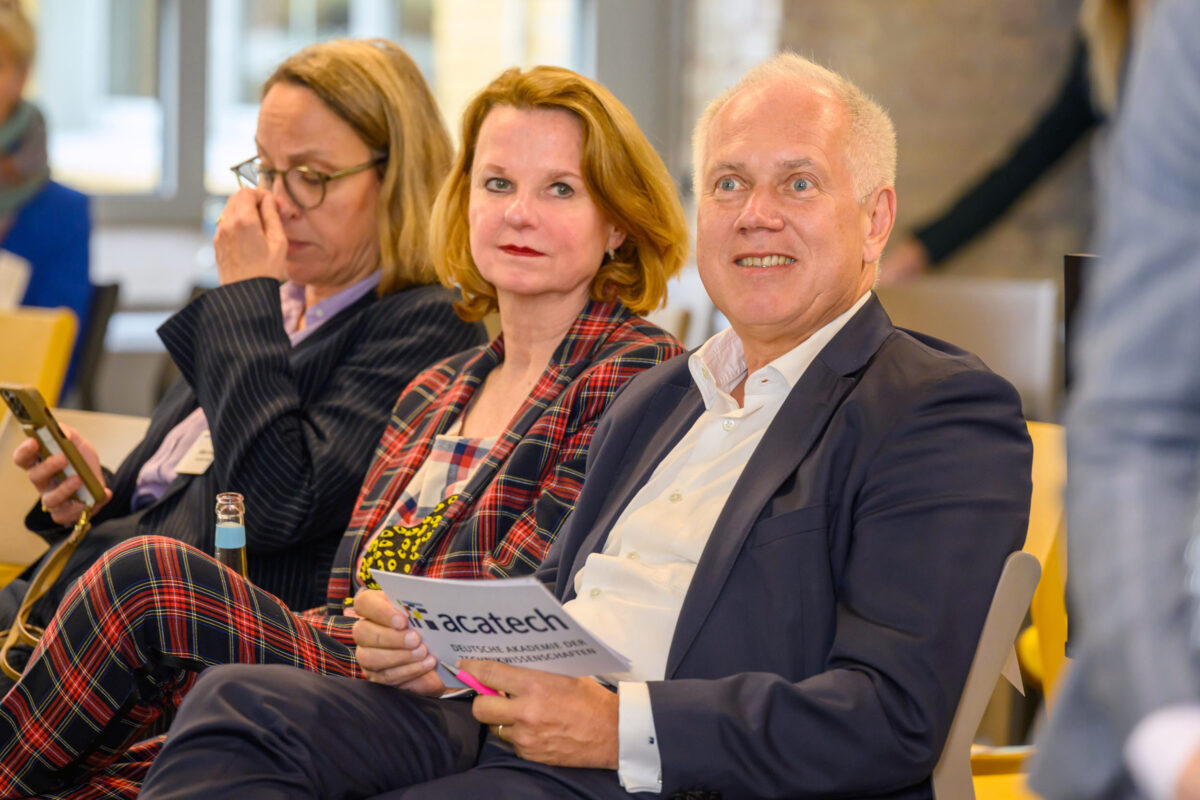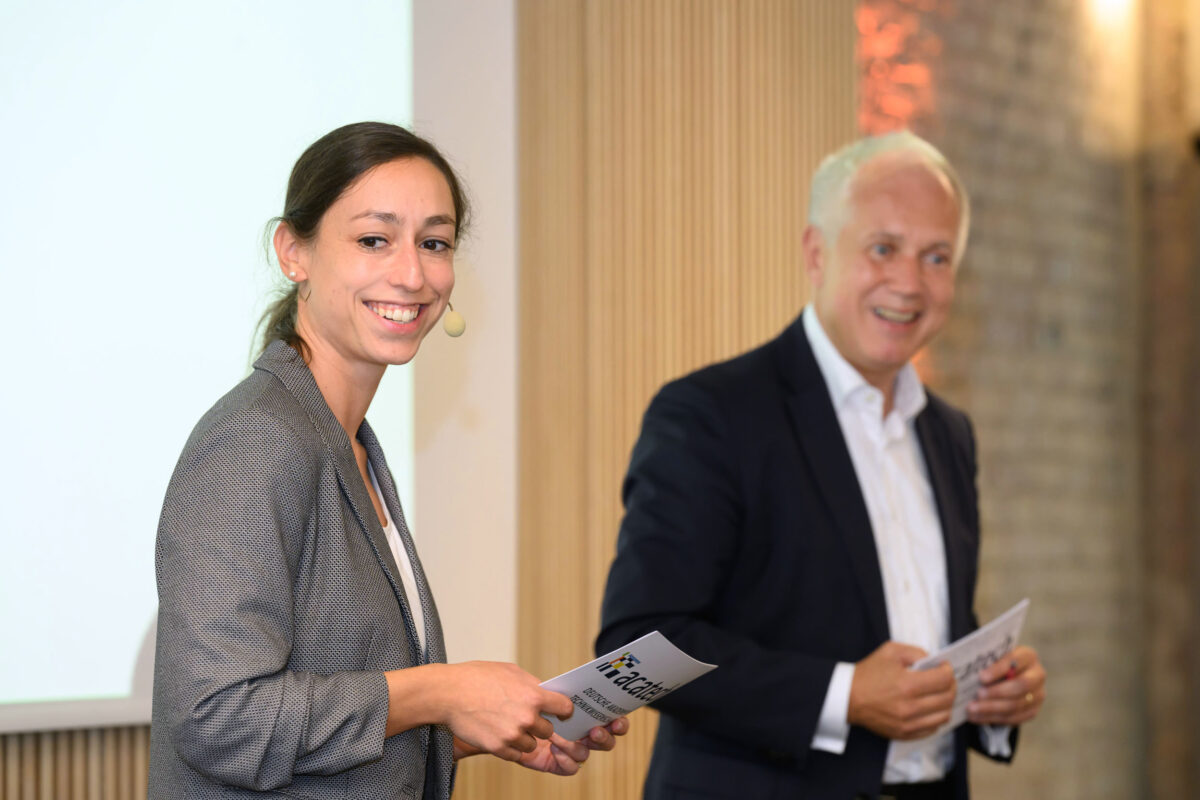Annual conference of acatech’s Human Resources Working Group: The three pillars of technology, organisation and human resources
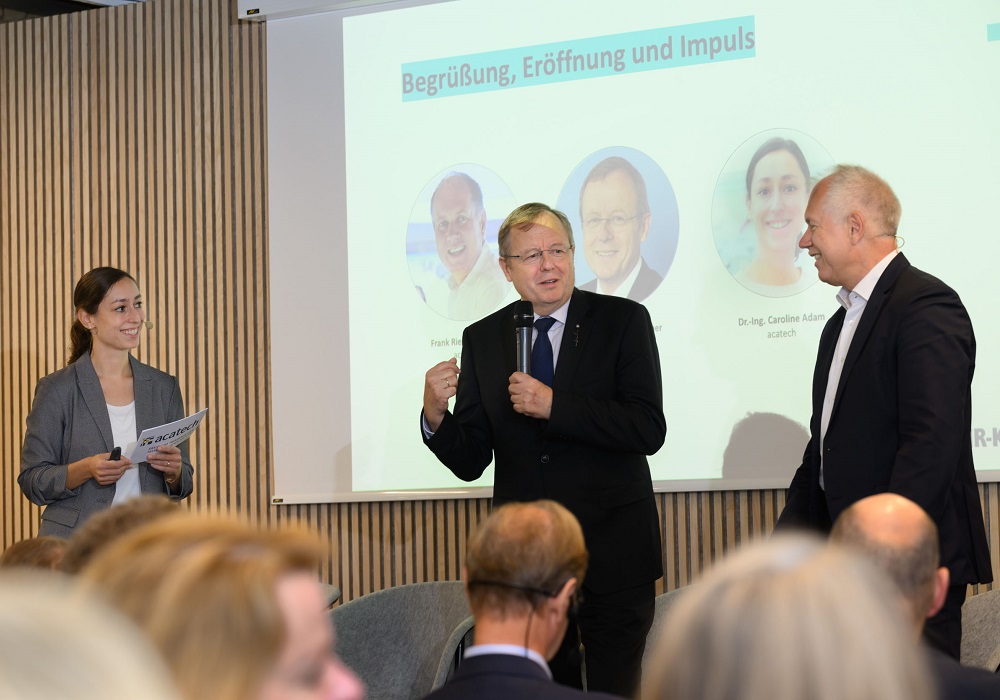
Munich, 19 October 2023
At the annual conference of acatech’s Human Resources Working Group in mid-October, Chief Human Resources Officers (CHROs) and representatives of science, politics and co-determination met to discuss the key aspects of the digital transformation. What is clear from the conference is that, first of all, organisational change – and a greater will to change – is needed to bring about the technological transformation in organisations.
For almost ten years, the work of acatech’s Human Resources Working Group has been concerned with the digital transformation of work. The forum, made up of CHROs of technology-oriented companies and experts from science, was invited by acatech President Jan Wörner and acatech Executive Board member Frank Riemensperger to attend the first annual conference of acatech’s Human Resources Working Group in Berlin in October. The title of the event was “Digital Transformation: Human Resources and Organisation as Success Factors” and it focused on the perspectives and results that have come out of the Human Resources Working Group’s #FutureWorkDebatte, a series of virtual debates, over the past year and a half.
In his welcome address, acatech President Jan Wörner noted that there is no one “future of work” but, rather, as many different futures as there are different areas of work. To realise the future, what is needed first and foremost is a high-quality STEM education.
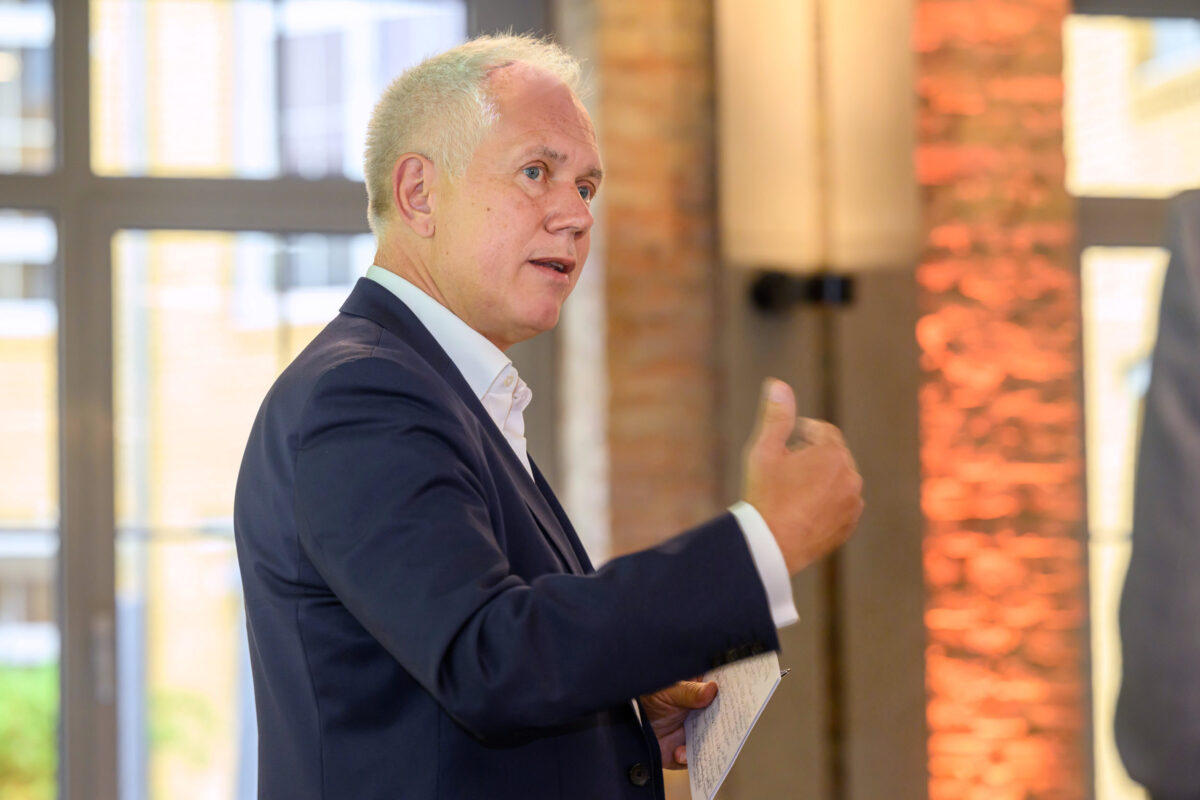
In his speech, Human Resources Working Group co-host and acatech Executive Board member Frank Riemensperger went into the three pillars of technology, organisation and human resources, sketching the outline for the day’s discussions. He focussed, for one, on the need to identify at an early stage what technologies will have an impact on business models. But he also pointed out that the use of these technologies is contingent on employees becoming qualified and organisations adapting. All too often, he said, the digital transformation of work fails due to the organisations themselves rather than the workers. Accordingly, he called for a greater will to change: “We need new solutions and a digital culture that people can get enthusiastic about!”
Enthusiastic and motivated workers are important for successful lifelong learning – a key factor in the digital transformation. This was echoed in the next keynote speech, given by Stefan Asenkerschbaumer, Chairman of the Supervisory Board of Robert Bosch GmbH. Because the development of technology is so dynamic it is becoming increasingly important to give employees access to qualification opportunities and self-determined learning.
To get people enthusiastic about training, companies must in turn work on credibility – on this there was broad consensus in the subsequent panel discussion, in which acatech President Thomas Weber also took part. There are questions that must be answered: What is the corporate object? What are the company values? How do we deal with inconsistencies?
The digital transformation changes organisations and, as such, creates uncertainty for workers. On that basis, Claudia Bogedan, Managing Director of the Hans Böckler Foundation, noted in her keynote speech how important it is to go about the transformation together. In the subsequent discussion, too, participants agreed that it is important to involve workers at an early stage when introducing new technologies, to break free from traditional roles and management cultures and to prevent the spread of misinformation about topics such as digitalisation or AI.
In his keynote speech, acatech Vice-President Christoph M. Schmidt gave an overview of the current situation in the German business landscape. The three Ds in particular – deglobalisation, defossilisation and demographics – are creating challenges for Germany’s economy potential. The attractiveness of direct investment in R&D must be increased, he said. He pointed out specific ways to achieve this. The subsequent discussion panel spoke in favour of greater experimentation, pragmatism and focus on solutions to overcome the challenges. The participants were also in agreement on the expansion of digital business models and the use of technologies such as AI to enhance productivity and develop skills.
To conclude, Frank Riemensperger recapped the opportunities for jointly shaping the future of industry. This must involve human participation, a combination of idealism and science, and the optimal use of new technologies. What was clear at the end of the conference was that the digital transformation of companies is all about the introduction of new technologies – and even more so about profound organisational change, where existing management styles must be rethought, as must the aspects of training, co-determination and the corporate object. Human Resources and, in particular, CHROs are the drivers of this transformation.
Moderators, keynote speakers and discussion panels:
Moderator
Caroline Adam, acatech
Keynote speakers
- Stefan Asenkerschbaumer (Robert Bosch GmbH)
- Claudia Bogedan (Hans-Böckler-Stiftung)
- Christoph M. Schmidt (RWI)
Discussion panel
Realising the potential of technological change for and by Human Resources
- Stefan Asenkerschbaumer (Robert Bosch GmbH)
- Susan-Stefanie Breitkopf (Carl Zeiss AG)
- Claudia Mayfeld (Knorr-Bremse AG)
- Thomas Weber (acatech)
- Moderator: Frank Riemensperger (acatech)
Discussion panel
Putting human resources at the centre of solution-finding to bring about a successful transformation
- Sebastian Biedenkopf (Fresenius SE & Co.KGaA)
- Claudia Bogedan (Hans-Böckler-Stiftung)
- Thomas Ogilvie (Deutsche Post AG / DHL Group)
- Isabel Rothe (Federal Institute for Occupational Safety and Health)
- Moderator: Katharina Hölzle (Fraunhofer IAO / University of Stuttgart)
Discussion panel
Collectively thinking about digitalisation, demographics and decarbonisation for the value creation of tomorrow
- Svenja Falk (Accenture / Justus Liebig University Giessen)
- Sabine Mlnarsky (Commerzbank AG)
- Christoph M. Schmidt (RWI)
- Christoph Schmitz (ver.di)
- Moderator: Claudia Peus


